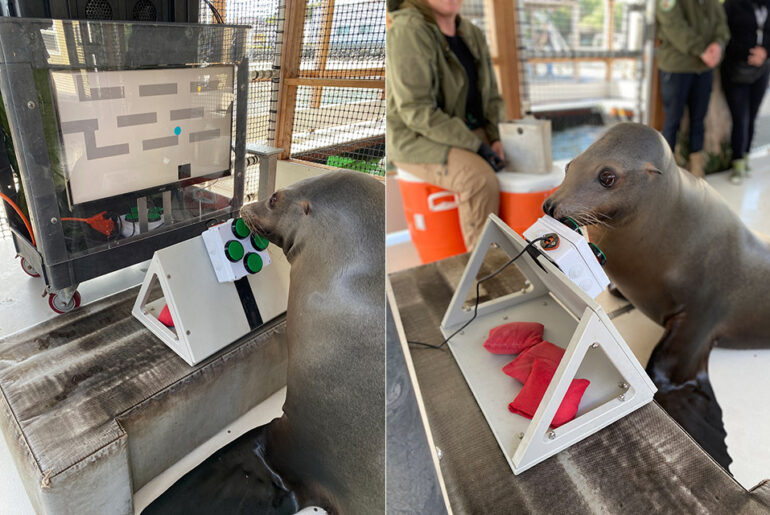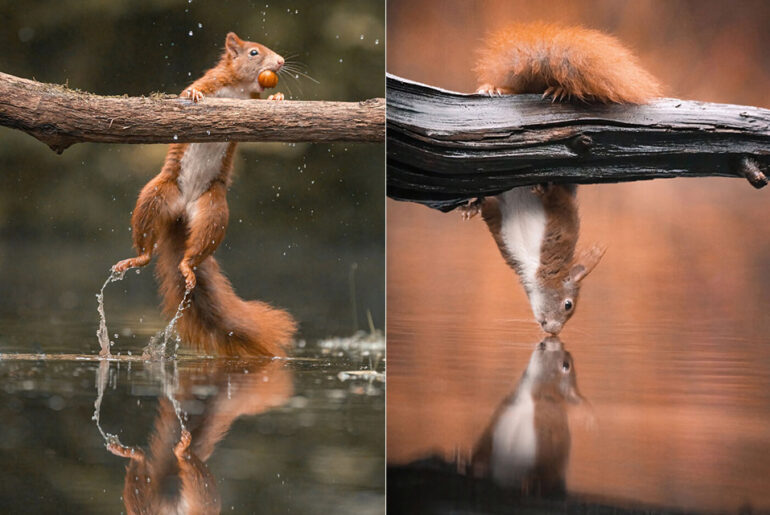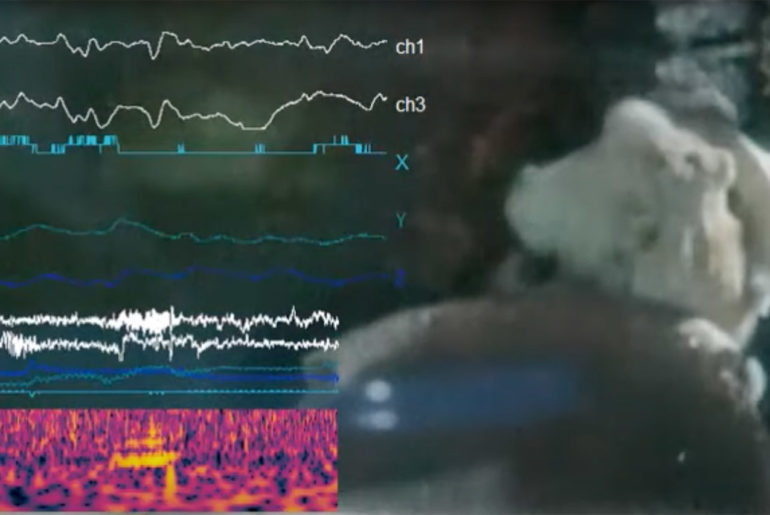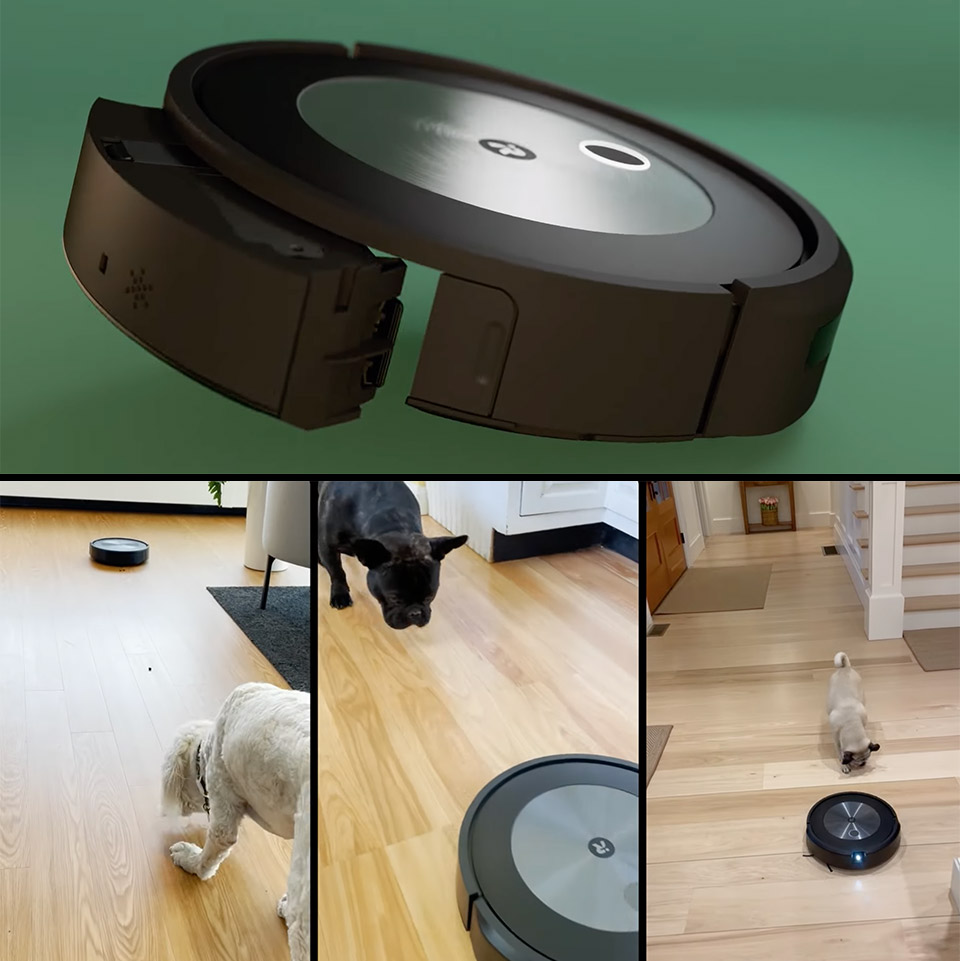
T.R.E.A.T. (Tasty Reward Emission Apparatus Thingy) by iRobot turns your Roomba robot vacuum into an on-demand dog treat dispenser. The attachment simply slides right into the base of the vacuum, replacing the collection bin with just about any dry treats you desire.
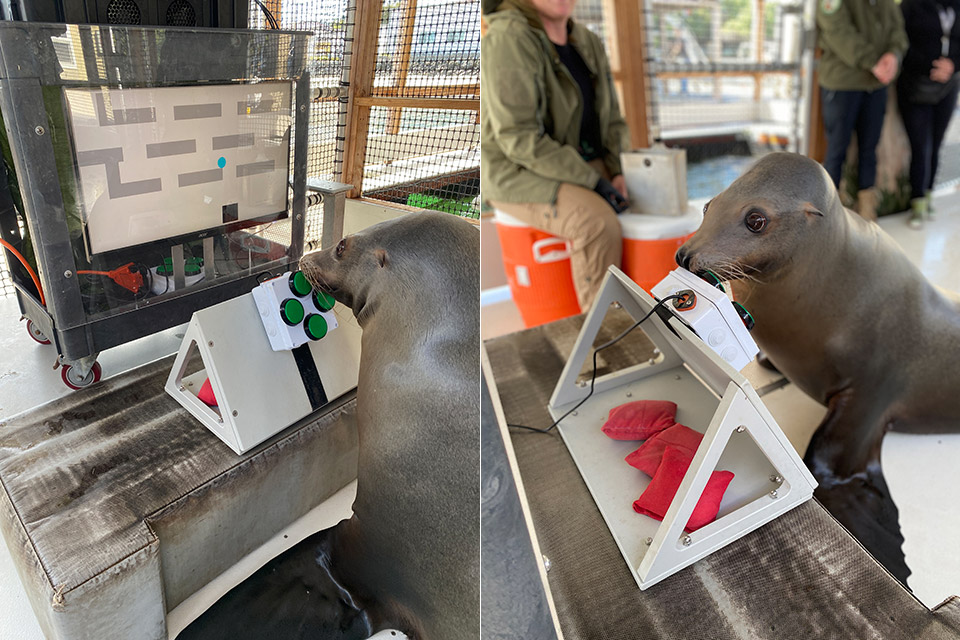
If you’ve never heard of the US Navy’s Marine Mammal Program, just know that it’s training sea lions to play video games. Why? Scientists from the Naval Information Warfare Center (NIWC) believe that this is a proven method for cognitive enrichment and it opens doors for more research on keeping marine mammals happy as well as healthy longer.
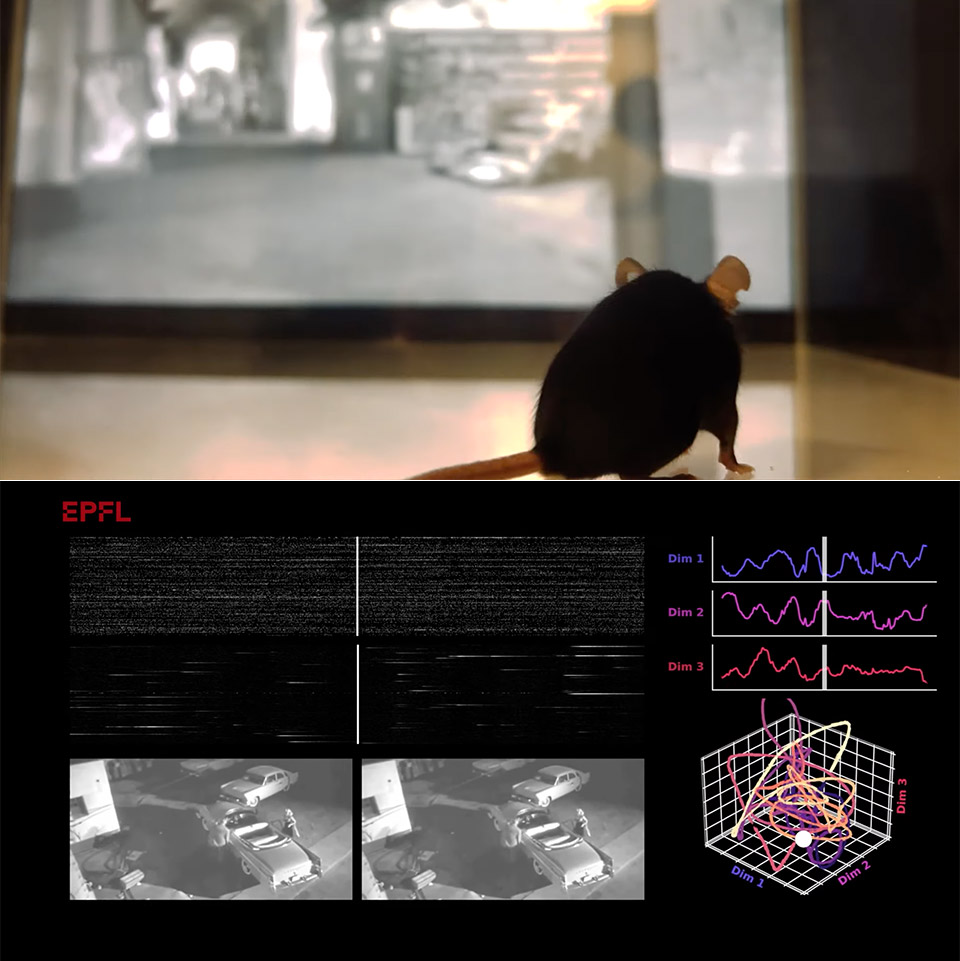
EPFL researchers have managed to decode a mouse’s brain signals to predict what it sees using a new algorithm for building artificial neural network models designed to capture brain dynamics. This machine learning algorithm is called CEBRA and it can decode what a mouse sees while it watches a movie as well as reconstruct the positions of rats as they freely run around a room.
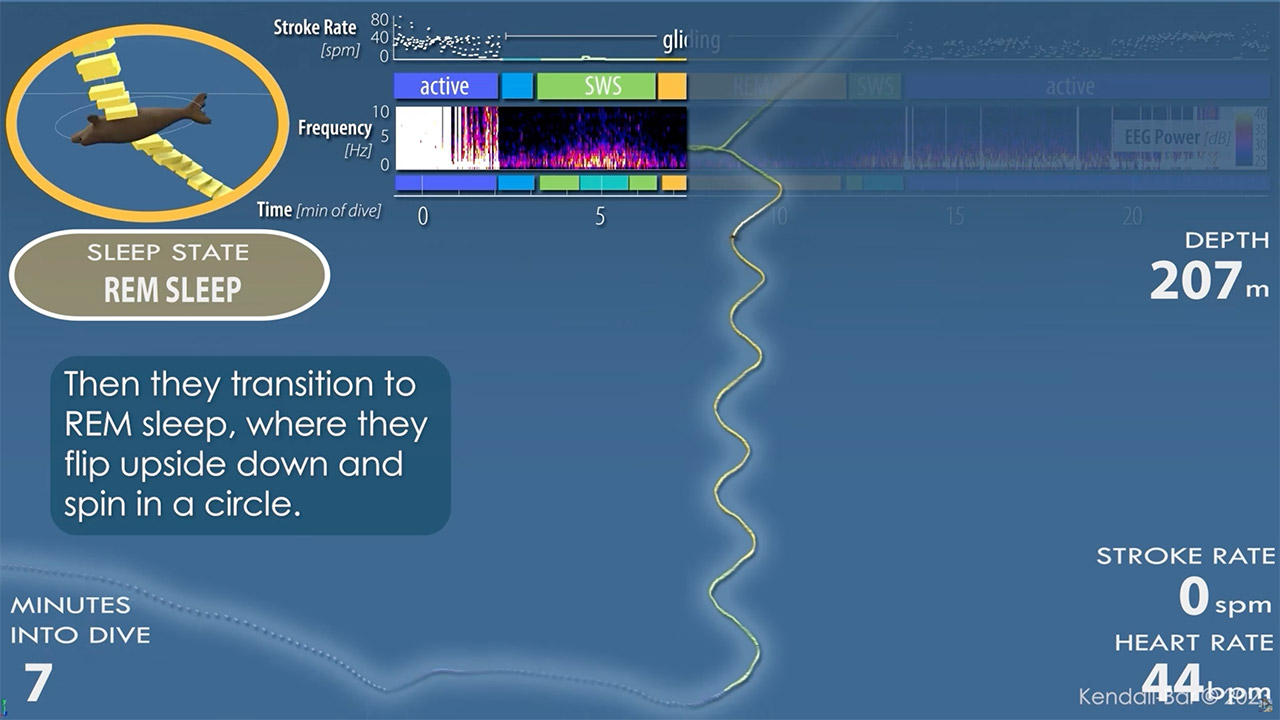
Unlike translucent glass frogs, elephant seals sleep upside down for just 2-hours a day while in a deep diving spiral. These short naps deep below the surface allows them to evade predators and during their months at sea, they rival the record for the least sleep among all mammals, currently held by African elephants, which also sleep just 2-hours per day.
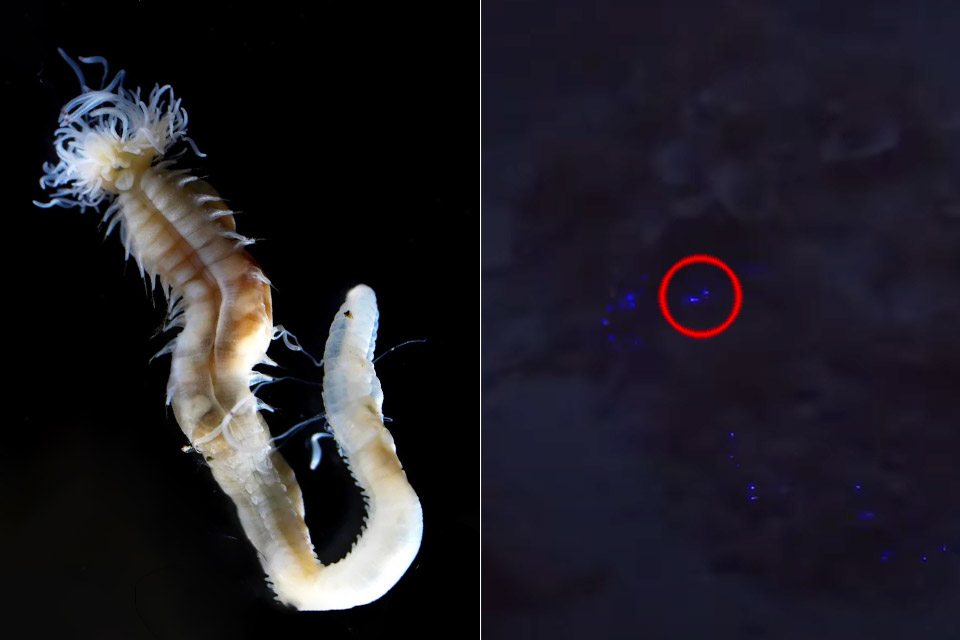
Researchers have discovered rare demon fire worms, classified as Polycirrus onibi, Polycirrus aoandon, and Polycirrus ikeguchii, in Japan that actually glow-in-the-dark. They can be found in shallow rivers and streams off the coast of Japan, emitting a blue and purple glow at night, which connect them to Japanese folklore of demons, also known as ‘yokai’.
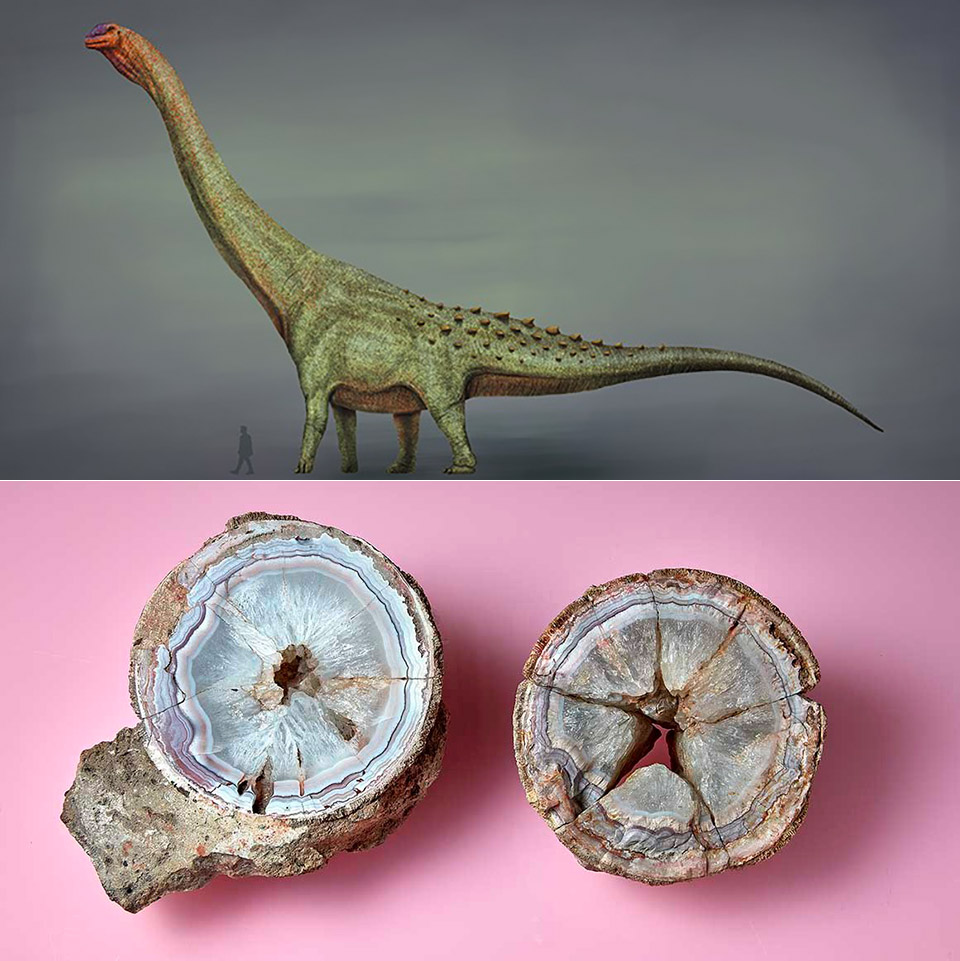
A rock containing agate that was first classified in 1883 at London’s Natural History Museum is actually a 60-million-year-old dinosaur egg. Researchers found that the eggshell’s shape and surface were consistent with those of titanosaur eggs from China and Argentina. Despite being the largest land animal to have ever existed, the titanosaur laid large clutches of around 30 to 40 small eggs at a time.
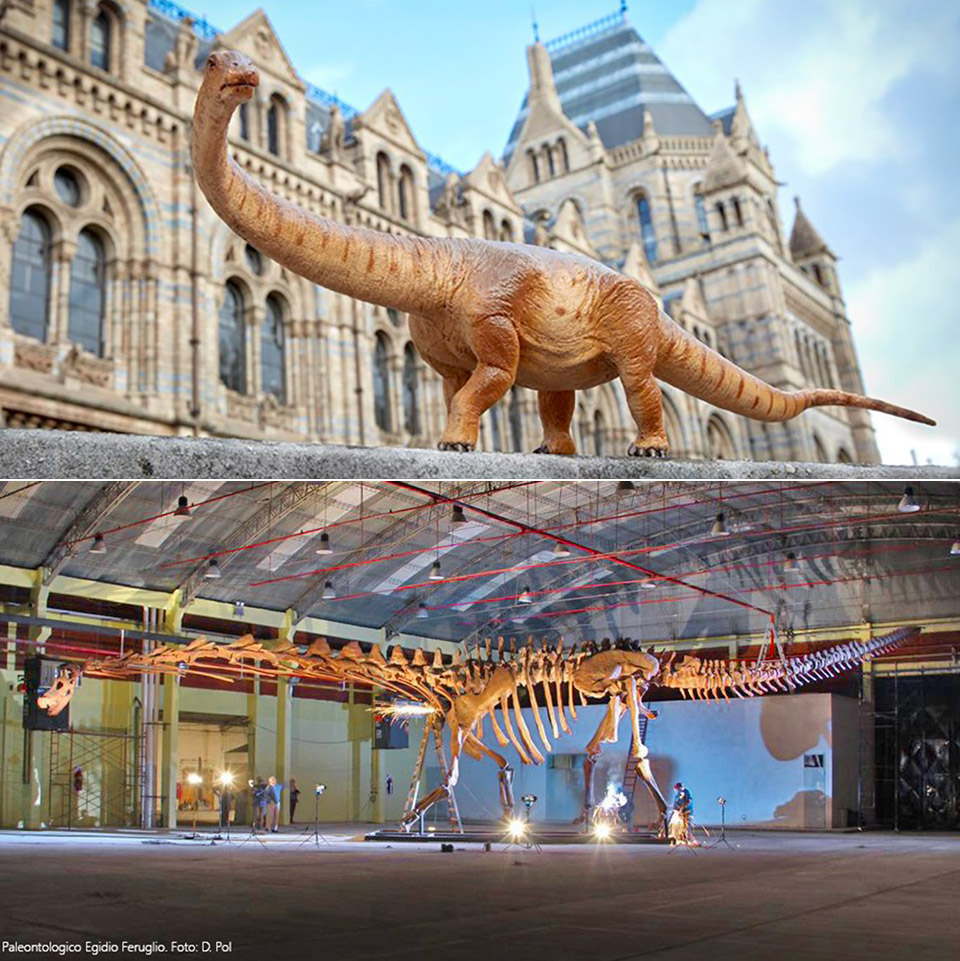
Photo credit: Patagotitan, Museo Paleontológico Egidio Feruglio (MEF) D.Pol
Titanosaur, the world’s largest known dinosaur, goes on display at London’s Natural History Museum in a fun interactive exhibition. Guests will be able to touch, feel and walk beneath the 2.67-ton cast of this 122-foot-long beast, all the while learning how it could have survived as well as thrived on Earth.
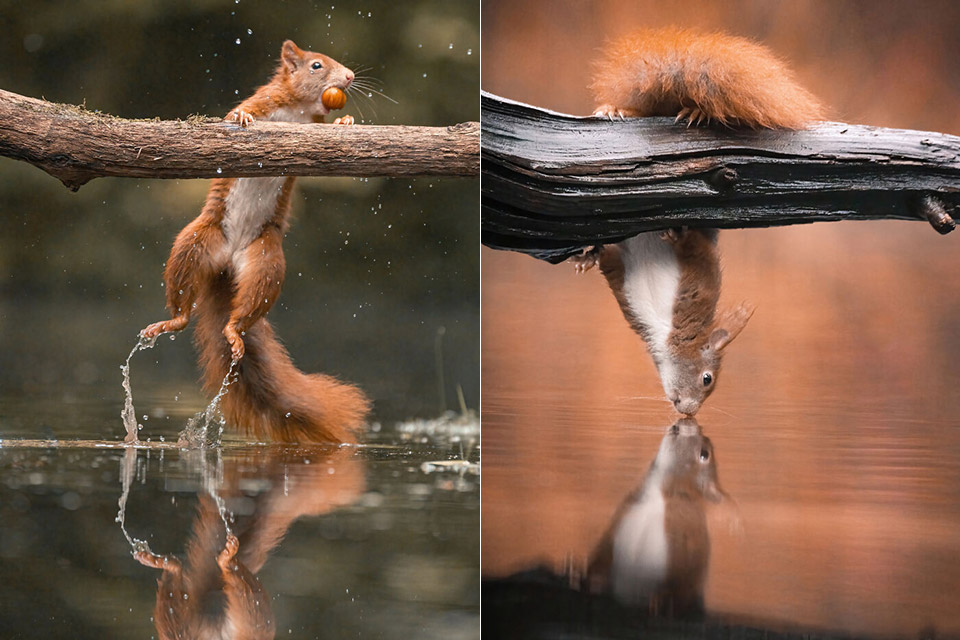
Photo credit: Niki Colemont
Niki Colemont, a talented photographer from Genk, Belgium, specializes in capturing acrobatic red squirrels at the perfect time and place using a Nikon Z9 mirrorless camera as well as a Nikon Z6 II lens. These extremely flexible animals have super-flexible ankles, which allows them to easily hang upside down from trees, while their swiveling ankle joints help them climb.

You’ve seen the giant Pacific octopus that loves hugs, now check out scientists recording the brain wave activity from a freely moving octopus for the first time ever. This is a technical challenge because unlike vertebrates, octopuses have soft bodies, so they do not have skulls to anchor the recording equipment onto to prevent it from accidentally coming loose.
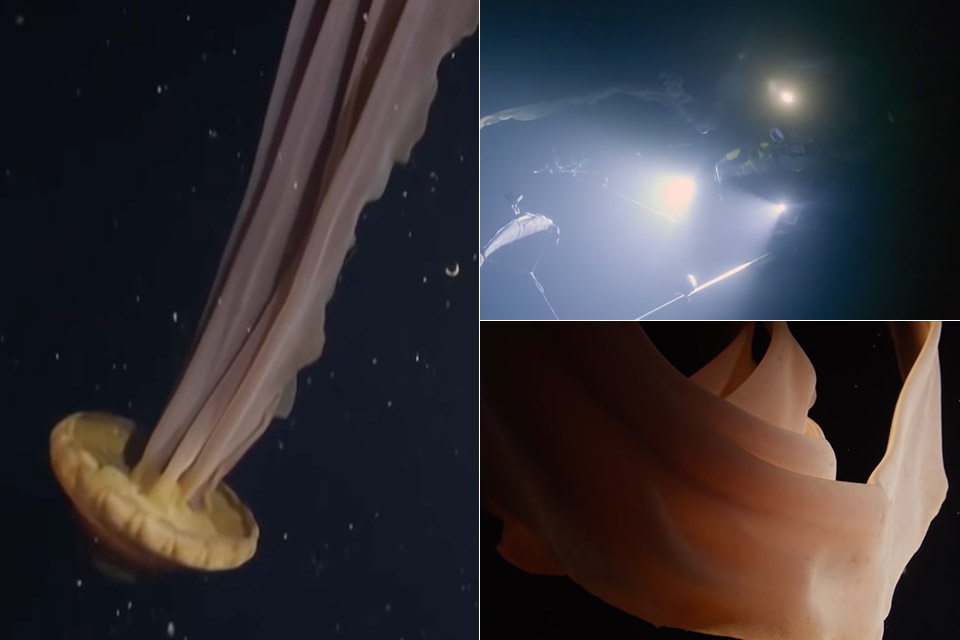
There have been fewer than 150 sightings of the mysterious phantom jellyfish ever, and this one was captured on camera off the coast of Antarctica’s Ronge Island by a group of travelers on Viking Expeditions. These giant 30-foot intervertebrates can typically be found in the midnight zone of polar oceans and feed on plankton as well as small fish.


